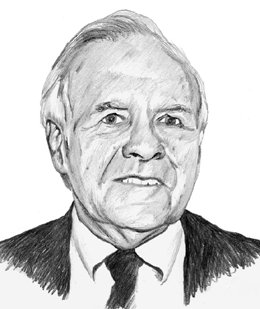INTERVIEW
Truth In Futures John Hill
by Thom Hartle
John Hill started out in the business of trading commodities in a most remarkable way when he managed to run $1,000 up to $80,000 in a matter of three months -- and then managed to lose all but $5,000 in a single day. Some traders would hang up their charts after that, but Hill was determined to understand what he had done wrong. It took years of study, but he figured it out. STOCKS & COMMODITIES Editor Thom Hartle interviewed Hill via telephone on April 23, 1998, asking him about Futures Truth, the publication he has produced since the 1970s; why novices could benefit from mechanical systems; and what details are important to fairly evaluate the performance of a system.

I remember subscribing to your newsletter back in the early 1980s! How did you start out in the business?The best systems are the ones with the fewest parameters. You can go berserk putting in parameters. The systems that have withstood the test of time have very few parameters and very simple methods. -- John Hill
I'm actually an engineer by training. Back in 1958, I had a very good job, a wife, three kids, a big mortgage and $1,000. I was buying and selling a few stocks, and one day someone mentioned that I could trade commodities and only have to put up 5% leverage. That sounded good to me, so I started trading commodities, and in the next three months, I literally ran that $1,000 up to $80,000. Now, you should know that engineers think they are smarter than most people, but they're not.
That kind of runup sounds pretty smart to me!
Well, I was inverse pyramiding. And then I lost most of it in one day.
All of it?
No, I still had $5,000 left.
That's still better than what most newcomers do when they start trading futures.
True. Out of this experience, I learned two things. One, there was a big element of stupidity. Two, if I could do it once, I could do it again. In fact, I like to tell people that the futures markets ruined a pretty good engineer. So I still had the $5,000, and I was working as an engineer, which required me to travel. So if I were in the neighborhood, I would spend my weekends in the Library of Congress chasing down everything I could find about the markets.
Technical work?
Yes. Somehow, I'd decided the technical approach was the only way to go. Everyone knows the fundamentals, so you don't have any edge there. In the technical approach, you can have an edge if you study the chart and decide which way the big money's going.